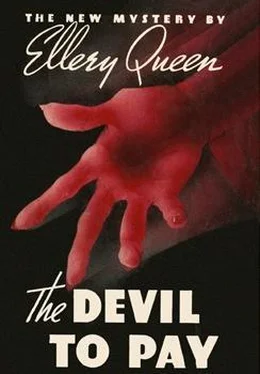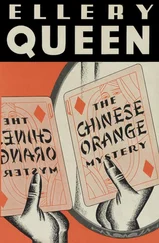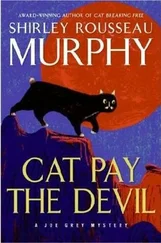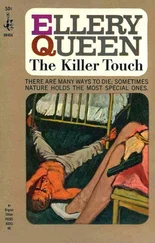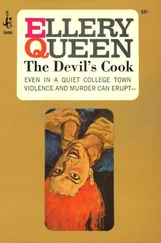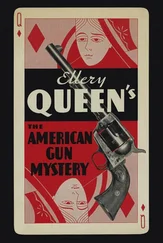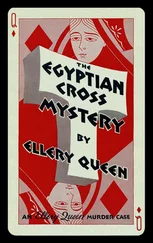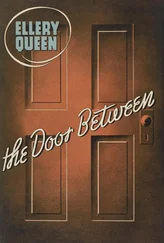But Fitz ignored her. He lumbered over to the bearded young man and said: “Hey, you’re somebody I know.”
“Yes?” said the young man politely, and he moved off.
Fitz followed him. “Name’s Queen, isn’t it? Ellery Queen?”
“Sharp eyes,” said the young man. He moved off again.
Fitz seized his arm. “Know who bought your stuff, Rhys?” he bellowed. “Ellery Queen, the master-mind!” But the master-mind was gone with a single twist. Fitz thundered after him, leaving a bewildered group behind. As he passed Walter he snapped: “Report to the office, damn you. Queen! Hey!”
He caught up with Ellery outside the house. Several of the vans had filled up and were gone; the men were packing the last two.
“Now don’t be unpleasant,” sighed Mr. Queen.
“I’m Fitzgerald of the Independent ,” said Fitz briskly, grasping Ellery’s arm like a grappling-iron.
“You’re an ass.”
“What’s that?”
“If I’d wanted my identity known, Mr. Fitzgerald, don’t you think I’d have advertised it myself?”
“So that accounts for the phony brush!”
“Not at all. I broke out in a nasty facial rash a few months ago — probably an allergy — and I couldn’t shave. Now that the rash is gone I’m so pleased with my appearance I’ve kept the beard.”
“With me it’s sinus,” said Fitz. “However, it still smells. How about the voice? Got a rash on your vocal cords?”
“Very simple, my dear Watson. The moment I stepped off the train into your balmy California rains I caught a laryngitis, and I’ve still got it. I should be in bed,” said Ellery bitterly.
“Why aren’t you? What’s the gag? What are you doing in Hollywood? Where’d you get the dough? Are you getting married and furnishing your love-nest?”
“If this is an interview,” said Ellery, “I’m a deaf-mute overcome by complete paralysis.”
“Say, who do you think you are? Managing editors don’t leg it.” Fitz eyed him keenly. “It isn’t if you say so.”
“I say so.”
“Now how about satisfying my layman’s curiosity?”
“It’s no gag. I’m in Hollywood on a writing contract to Magna — God knows I don’t know anything about writing for the screen, but they don’t seem to care, so I don’t either. And no, I’m not being married.”
“Wait a minute! Why are you buying the Jardin stuff?”
Ellery watched the last two vans drive off. He moved out from under the porte-cochère into the drizzle and stepped hastily into his rented car. “Goodbye, Mr. Fitzgerald,” he said amiably, waving. “It’s been nice seeing you.” And he drove off.
The Jardins and Walter and Pink stood in silence in the denuded living-room. “Are the — are the trunks gone?” asked Val at last in a small voice. “And... everything else?”
“Yes, Val.”
“Then I don’t suppose there’s anything—”
“Come on, let’s get going,” growled Pink, “before I bust out crying.”
They marched out of the empty house in a body, close together, like condemned criminals on their way to the wall. Outside Val picked a rose off a bush and absently pulled it to pieces.
“Well! Here we go,” said Rhys in a cheery voice. “It’s goodbye to all this. I think we’re going to have a lot of fun, puss.” He put his arm around her.
“All the common people have fun,” said Pink. “Perk up, squirt.”
“I’m all right,” protested Valerie. “Of course, it’s a little strange...”
“Let’s go,” said Walter in a low voice.
He preceded them down the private drive toward the pillbox at the gate, hands jammed into the pockets of his topcoat. He did not look back at either the Jardin house — or that other.
A crowd was waiting in the road beyond the gate, making mob noises; but the noises stopped as the little procession came toward them. Frank, the day man, his empty left sleeve flapping, hurried from the pillbox toward their two cars, which were parked near the gate.
It became more and more difficult to keep that steady pace. Val felt a little faint. It was like the French Revolution, with the mob of citoyens waiting greedily for the victims, and the guillotine looming ahead...
Frank held the door of Jardin’s small sedan open — the only car they had kept.
“I’m sorry, Mr. Jardin. I’m awfully sorry,” said Frank. In getting into the sedan Rhys had caught his coat on the door-handle, and the camel’s-hair fabric just below the right pocket ripped away in a triangular flap.
Pink said: “You tore your coat, Rhys,” but Jardin paid no attention, groping blindly for the ignition-key. Valerie crept into the rear seat and slipped far down on her spine; she avoided Walter’s eyes as he closed the door behind her. Pink jumped in beside Jardin.
“I’m sorry, sir,” said Frank again, in a weepy voice.
“Here.” Jardin leaned out and pressed a large bill into the gateman’s hand. “Split it with Walewski, Frank. Goodbye.”
“Thanks, thanks!” Frank scuttled off to the gate.
“Well,” smiled Rhys, starting the car, “what shall it be? A snack at the Troc?”
“It’s too expensive there, pop,” murmured Val.
“How about Al Levy’s? Or the Derby?”
“Better get going,” remarked Pink dryly, “before that mob out there starts yipping for blood.”
Rhys fell silent and shifted. Val looked back. Walter was getting into his coupé, slowly. Then he stopped and stepped back and looked across the lawns toward the Spaeth house. Far away, Solomon Spaeth stood alone, in motion. He was waving and his mouth was open. Apparently he was shouting something, but his voice did not carry.
Walter’s lean jaw hardened. Val saw the taut whitening line. He got into his car without a sign that he had seen.
“It’s like the end of a bad dream,” thought Val, shivering. “For all of us.”
Then they were pushing slowly through the silent crowd and she sat up straight and tried to look as she fancied Marie Antoinette had once looked in a somewhat similar situation.
After lunch Pink said he had to see a dog about a man and Jardin dropped him at the Magna studio on Melrose.
“We may as well face it, Val,” said Rhys when Pink had gone. “We’ll have to go there some time.”
“Why not now?” smiled Val. She felt better, because the sherry had been good and so had the chicken patties. And it was true — they might as well get used to the notion that they were proletarians just as quickly as they could. The only fly in the afternoon’s ointment was Walter; he had left them abruptly, with a gloom that was odd even for him.
Val brooded about Walter as Rhys drove up to Santa Monica Boulevard and turned west on the car-tracks. She would definitely have to do something about Walter. Things couldn’t go on this way. It was absurd of him to reject her proposal of marriage — absurd and a little dangerous, considering that last quarrel with his father and the look in his eye.
“Here we are,” said Rhys bravely.
Val sat up. There they were, one square from Hollywood Boulevard’s bedlam — in front of the La Salle .
“Parking,” said Rhys, “is going to be a problem.”
“Yes,” said Val. “Won’t it?”
Rhys finally found a tiny space near a curb, and he parked and they got out and looked at each other and squared their shoulders and entered the hotel. “You must be the Jardins,” said a small blonde girl with a blonde dip over one eye. “Pink ’phoned me about you. I’m Mibs Austin.”
“Hello, Mibs,” said Val, looking around at the lobby.
Miss Austin took the earphones off her head and leaned earnestly across the register. “Now don’t let anything worry you, honey. I just about run this dive. Watch out for Fanny, the woman who’ll clean your apartment; she skips corners. The radio needs a new thingumbob — I’ve told the manager about it. And, Mr. Jardin, the valay here is very high-class.”
Читать дальше
